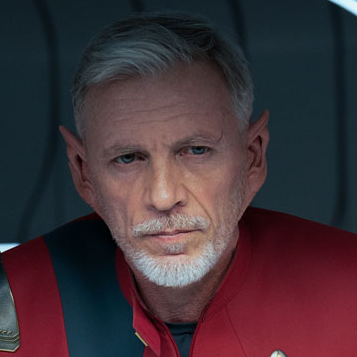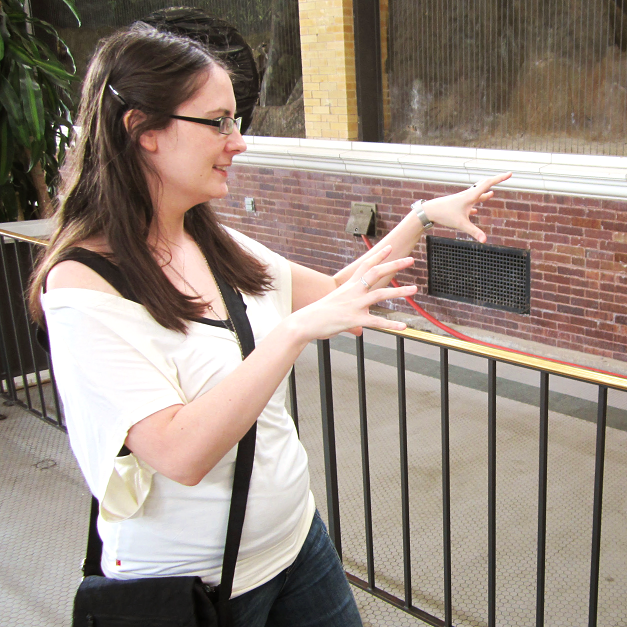Logline
A shuttle accident leads to Spock’s Vulcan DNA being removed by aliens, making him fully human and completely unprepared to face T’Pring’s family during an important ceremonial dinner.
Written by Kathryn Lyn & Henry Alonso Myers
Directed by Jordan Canning
I thought this episode walked a really fascinating line in its approach to exploring the lived experience and cultural significance of mixed identities. Having the ancient alien species misinterpret Spock’s Vulcan DNA as an anomaly/pathology was a risky move from a writing perspective given the potential for reproducing language and ideas associated with eugenics. But doing so allowed what what I thought was a more robust examination of Spock’s character and his relationships, by way of separating one half of his identity from the other and seeing what happens (like a smaller scale of Community’s excellent “Remedial Chaos Theory,” which examined how the study group might be affected by the temporary removal of each group member in turn).
There was plenty to laugh at, of course. Ethan Peck could easily have gone too over-the-top in playing Spock’s surge in human emotions, but I think he threaded the needle really well in allowing through just enough Vulcan “muscle memory” (as it were) to tamp down the humania – and he still managed to be extremely funny. And Anson Mount as always shined with his subtle (and hilarious) comic timing as the host of the engagement ceremony. Watch the way he snaps his fingers when T’Pring’s father asks for more Tevmel --and how he continues on in wide-eyed stride on his way back to the group once Spock starts admitting to his “condition.” Mount is a performer who knows how to blend into the scenery rather than chew it – a distinct quality in a Star Trek captain and a consistently funny one to boot.
But what really made this episode work for me was the heart in addition to the humor. I have a friend who remarked earlier this season that she doesn’t understand why Star Trek is so obsessed with Spock’s human side; she’s much more attracted to his Vulcan side and is confused at what she sees as the constant efforts to make him “more human.” I can see her frustration, and this episode certainly turns into that skid a bit. But the show isn’t fantasizing or daydreaming about a Spock that’s fully human – it’s using the idea as a tool to understand his fuller and more complex identity, and to celebrate what makes Spock Spock. And I absolutely shed tears when Spock came clean to T’Pring’s parents about his condition, not just out of personal pride but as a way to express affection and appreciation for his human mother. What a wonderful moment.
And I think this episode’s true strength was in depicting how everyone in Spock’s life understood that being made “more human” didn’t make him better or more “fun” or more “relatable.” Not once did anyone murmur to anyone else something like, “Are we sure we want to fix him?” (which I could easily see Dr. McCoy saying, for example). Instead, everyone understood fundamentally the unique value of Spock’s half-human/half-Vulcan identity, and went to great lengths to bring it back. It might have been a bit corny to funnel that through Nurse Chapel’s romantic feelings for him, and having her have to admit those feelings to an ancient alien species – but it was smart, too. (And seeing her tell the Vulcan Science Academy that she didn’t think their fellowship was ready for her made me literally pump my arm, by the way).
Another solid Spock-centric episode in my book. I look forward to reading what everyone else thought!
This episode was so much fun!
I’ll admit, reading the premise ahead of time (by accident because Liftoff app doesn’t do spoiler tags yet oops) had me worried as I find a lot of attempts at “humour” in modern Trek tend to try way too hard and are just uncomfortable to sit through. But this was genuinely funny! Turns out Ethan Peck has great comedic timing, and Pike’s background antics and reactions were fabulous. The dynamic between T’Pring’s parents was a bit stereotypical but also extremely relatable.
Also really liked what they did with Nurse Chapel in this episode. Her pain and desperation helped balance the episode and make it something more than just funny hijinks. The feelings of regret and survivor’s guilt, the desperate need to fix something that wasn’t even your fault, grief over losing (at least partially, in this case) someone you love. So many complex emotions shown on screen at once, all by one character, and entirely believably, was not something I expected from a “haha funny Spock” episode.
They’re also doing a really good job of playing out the long arc of T’Pring and Spock having genuine affection for each other to the point where we’re actually kind of going to be on T’Pring’s side when she finally reaches the conclusion of “Man, fuck that guy”
I would not be opposed if episode five of every season of SNW involves Vulcan Hijinks.
I’ve seen a great amount of curmudgeonly criticism of this episode in other places.
Can’t understand it really. There really seems to be a contingent of fans that just don’t want to have fun.
That’s exactly what it is. They have an extremely narrow and boring definition of what Star Trek is “supposed” to be, and revolt against anything that steps outside that, be it comedy, action, whatever.
Some of the criticisms fall in another category of beating on SNW’s alleged canon ‘violations’.
These include assertions that Chapel ‘isn’t the same person’ as she doesn’t have the same temperament/personality as in TOS, Uhura not having met or known of T’Pring before Amok Time, etc., Spock would have been ashamed to have eaten animal products (bacon), T’Pring’s ears have the wrong shape
While I can be quite critical of incoherence in plot threads or characters within a single show, especially in a single season (say in Discovery season two or every season of Picard), to me that’s a problem in how a set of writers are telling a specific story.
I’ve come to realize that the fans who just can’t get past continuity changes they can’t resolve immediately across the entire history of the franchise just aren’t going to enjoy SNW as much as I am.
I classify these inflexibilities as:
— not being open to the possibility that the characters may grow and change,
— not being open to the possibility of characters being unreliable narrators or saying things ironically in later shows (e.g., in TOS Uhura might tweak Spock about T’Pring to press him to identify who she is, even if she personally knew exactly who she was),
— refusing to accept that minor changes in timing, visual design, technology and characters are possible due to intertemporal interference as long as the Prime continuity maintains key/essential events.
In the end, hanging out here to have conversations with folks who are a bit more flexible is a better choice for me.
Identifying potentially unreliable narrators is such an underrated strategy! So a character says “The Federation has never encountered this race/phenomenon before.” Off to Memory Alpha to state this as fact! But of course, people state beliefs as facts, incorrectly, all the time in real life!
I find the implicit assumption that everything onscreen is ‘fact’ exasperating.
More episodes than not depend on guest or recurring characters providing inaccurate, incomplete or outright deceptive information. In many cases, the plot hangs on whether the hero crew can deduce or find more evidence about what’s actually going on.
To assume that everything not directly contradicted in an episode is true is boggling.




